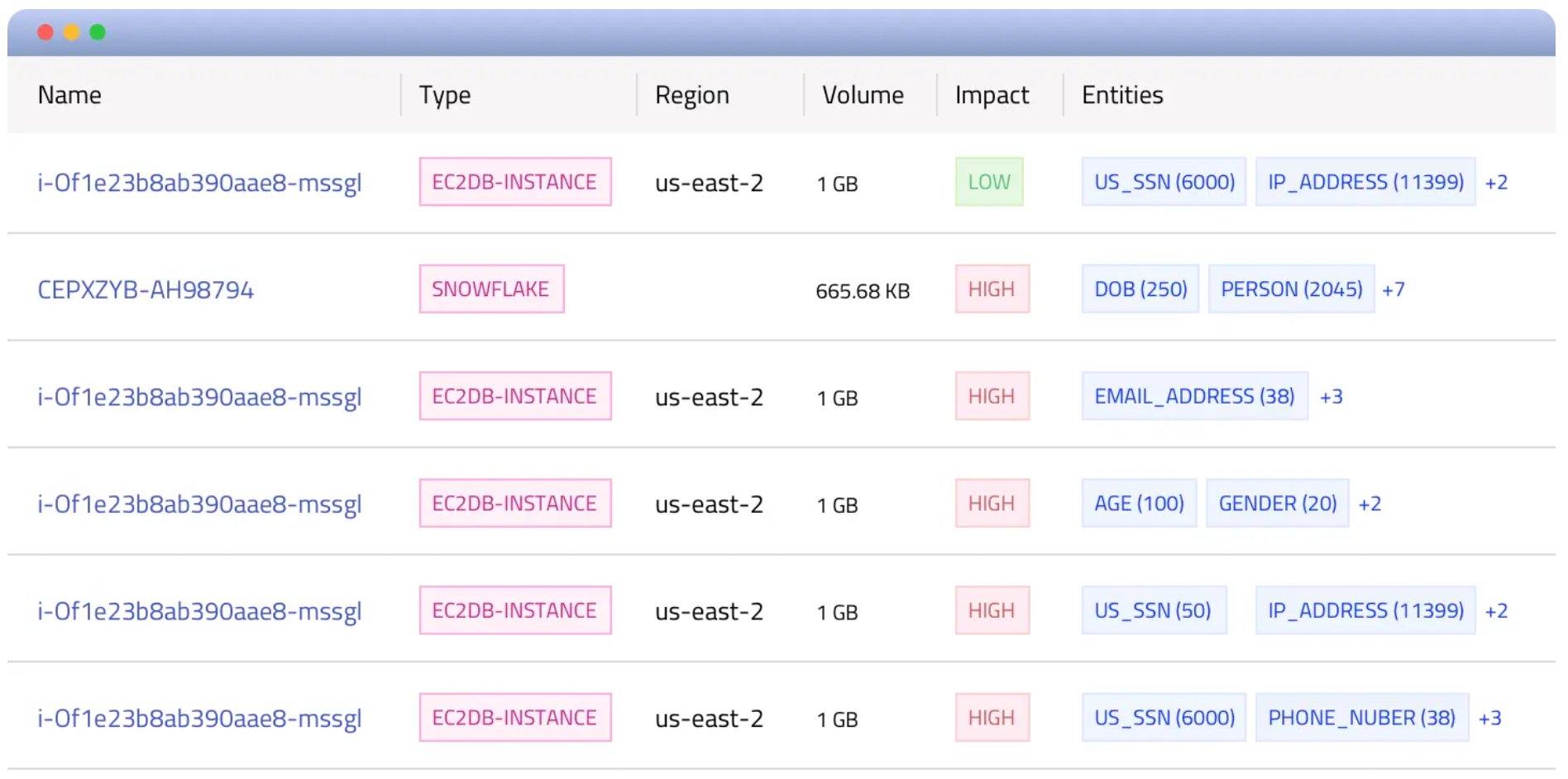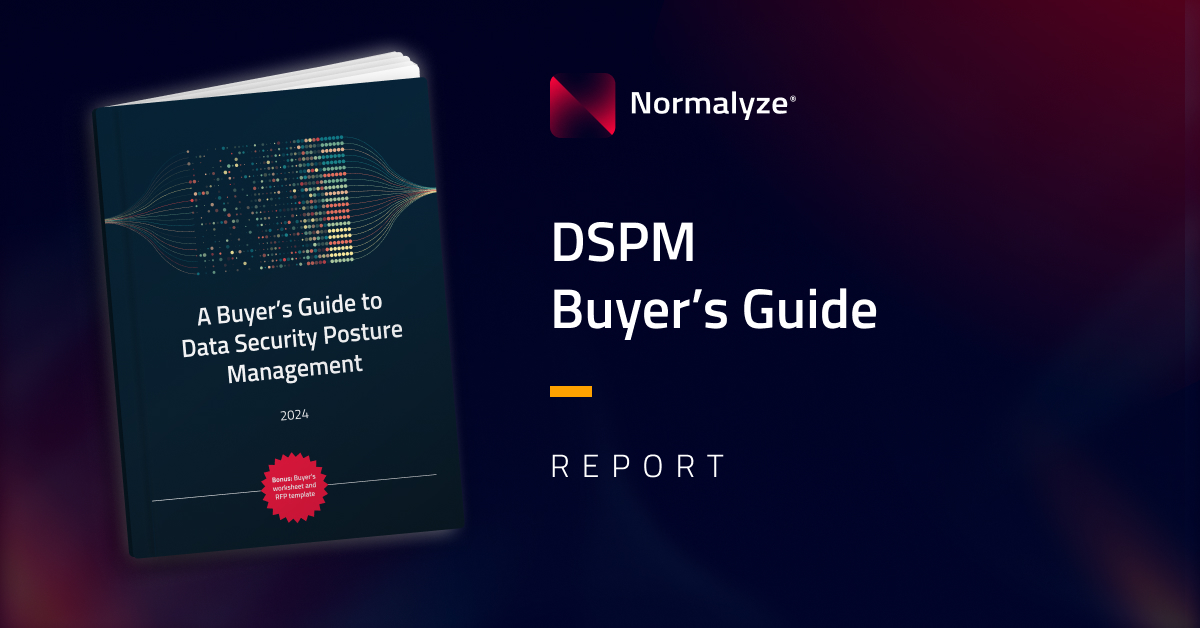Introduction
With the widespread adoption of digital transformation, cloud computing, IoT, AI/ML, and more, organizations are facing exponential growth in the amount of data they need to manage and protect. Data classification tools are pivotal in organizing and securing data based on sensitivity, ensuring appropriate handling and protection. This blog post will guide you through the fundamentals of data classification software, the different categories it encompasses, why it matters, and how Normalyze’s Data Security Posture Management (DSPM) solution can help organizations protect their sensitive data without compromising their integrity.
Data Classification and its Categories
Data classification involves the process of organizing and categorizing data based on its level of sensitivity, value, and regulatory considerations. Various categories of data classification include:
- Public Data: This category encompasses information that is freely accessible to the public and does not require additional protection measures.
- Internal Data: Internal data refers to information intended for internal use within the organization. While not publicly available, this data is not highly sensitive and requires less stringent security measures.
- Confidential Data: Confidential data is highly sensitive information that demands strong protection measures to prevent unauthorized access or disclosure. Such data includes proprietary business data, intellectual property, financial records, and customer information.
- Personal Identifiable Information (PII): PII is the data used to identify individuals, such as names, addresses, social security numbers, or financial details. Protecting PII is crucial to maintaining privacy and complying with data protection regulations.
The Importance of Data Classification Tools
Data classification goes beyond mere organization—it forms the backbone of adequate data protection strategies. Without the ability to accurately identify what and where their sensitive data is, organizations will be ill-equipped to protect their data, let alone enforce effective security practices. We will discuss the importance of data classification software in risk management, incident response planning, and compliance with data privacy regulations.
Data classification tools are essential for several reasons, including:
- Prioritizing Security Measures: By categorizing data based on sensitivity, organizations can allocate appropriate security resources and controls, focusing efforts where they are most needed, resulting in more significant risk mitigation.
- Incident Response and Data Breach Mitigation: Organizations with precise data classification can respond swiftly and effectively to security incidents or data breaches. By identifying the impacted data category, they can initiate targeted remediation efforts and minimize potential damage.
- Compliance and Regulatory Requirements: Many legal and regulatory obligations, such as GDPR, HIPAA, or PCI-DSS, depend on proper data classification. Organizations must implement the appropriate security measures and safeguards as relevant regulations require based on the type of data they have in their environments, and they need effective classification to prevent exposing themselves to greater risk.
The Role of Normalyze in Protecting (Sensitive) Data
Normalyze offers a comprehensive Data Security Posture Management (DSPM) solution that empowers organizations to protect confidential data without compromising its integrity or availability. Key features include:
- Automated Data Classification: The ability to automatically classify discovered data stores and their content, including identifying regulated data and proprietary information unique to the organization, ensures that organizations have complete visibility into their data and confidence that the appropriate security measures are in place for sensitive data.
- Continuous Classification: Continuous classification to identify sensitive data in newly added databases, tables, or columns immediately notifies security teams on the discovery of new sensitive data. This mitigates challenges organizations face with the scale and speed at which data is modified or interacted with in their environments.
- Granular Data Access Governance: Provides a granular view of sensitive data access without complex role and policy configurations, enabling swift resolution of access governance and compliance issues.
- Anomaly Detection: Identifying suspicious activity, including data breaches and account takeovers, through continuous user behavior analysis without the need for predefined rules.
- Monetary Impact Assessment: Ability to assess the potential monetary ($) impact that a data store breach would cause based on the data sensitivity involved.
Data Classification Tools Improve Core Data Security
Organizations gain better control over their data by categorizing it according to sensitivity. As data volumes continue to expand, data classification becomes increasingly crucial for core security functions, including risk management, regulatory compliance, and incident response.

Image: Continuous Discovery in Normalyze
Data security solutions like Normalyze, which offer effective data classification capabilities, enable organizations to rapidly discover, classify, and protect sensitive data across multiple cloud and on-premises. Embracing data classification and leveraging advanced tools can significantly enhance an organization’s security posture and safeguard its most valuable assets.
Get a 1:1 Demo of Normalyze DSPM & Data Classification Software
Connect with a Normalyze security engineer and get a hands-on product demo. In minutes, you can see for yourself how Normalyze will provide your security teams with 100 percent visibility and control of cloud-resident and on-premises sensitive data.
